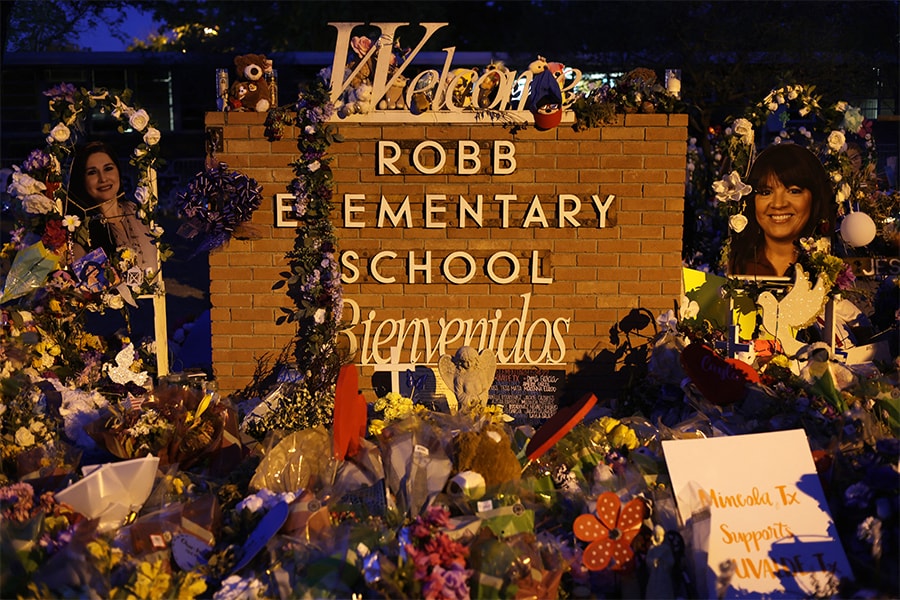
Old tricks, new crises: How misinformation spreads in the US
Accurate news stories about mass shootings have attracted eyeballs but algorithms have also spurred baseless conspiracy theories from trolls who want to push lies to attract traffic. And thousands have unwittingly shared them on Facebook, Twitter and other sites
 Flowers and photographs are seen at a memorial dedicated to the victims of the mass shooting at Robb Elementary School in Uvalde, Texas. Photo: ALEX WONG/ GETTY IMAGES VIA AFP
Flowers and photographs are seen at a memorial dedicated to the victims of the mass shooting at Robb Elementary School in Uvalde, Texas. Photo: ALEX WONG/ GETTY IMAGES VIA AFP
Washington, US: With gun control under debate and monkeypox in the headlines, Americans are facing a barrage of new twists on years-old misinformation in their social media feeds.
Accurate news stories about mass shootings have attracted eyeballs but algorithms have also spurred baseless conspiracy theories from trolls who want to push lies to attract traffic. And thousands have unwittingly shared them on Facebook, Twitter and other sites.
The May 24 attack at Robb Elementary School in Uvalde, Texas was a "false flag" operation aimed at pushing restrictive gun laws, according to Telegram posts from supporters of QAnon.
Carl Paladino, a New York congressional candidate, was among those who shared a similar theory on Facebook, later deleting it.
Others misidentified a shooting victim as "Bernie Gores" -- a made-up name paired with an image of a YouTuber who has been wrongly linked to other major news events, including the Russian invasion of Ukraine.







